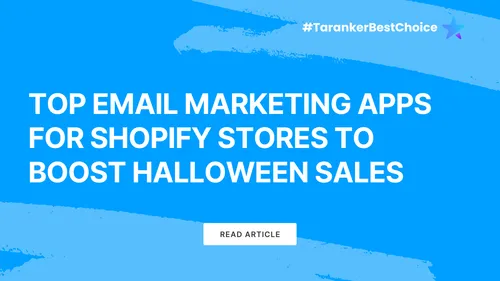In the rapidly evolving world of international trade, Shopify merchants face new import regulations that demand careful navigation in post-2025 markets. Understanding these regulations is crucial to maintain compliance and ensure business growth. The ever-changing landscape of global commerce requires Shopify merchants to stay informed about the latest import regulations, which have become increasingly complex with the introduction of new policies and technologies. As businesses expand their reach across borders, they must contend with a multitude of factors, including updated customs procedures, tariffs, and environmental compliance measures.
This guide provides a comprehensive overview, practical insights, and expert advice for Shopify merchants looking to successfully navigate the complexities of new import rules. From identifying key regulatory changes to implementing effective strategies for compliance, this resource aims to equip merchants with the knowledge they need to thrive in an increasingly competitive global market. Staying compliant is not just about avoiding penalties; it is about unlocking new opportunities for growth and innovation in international trade.
By delving into this guide, Shopify merchants will gain access to valuable information that can inform decision-making and foster a proactive approach to managing imports. With the right tools and insights, businesses can position themselves to overcome the challenges of new import regulations and seize the benefits of a more connected world economy. Dive in and discover how to turn regulatory hurdles into stepping stones for success.
Understanding the New Import Regulations
This section delves into the specifics of the new import regulations that have emerged post-2025. Navigating these regulations requires Shopify merchants to stay informed about:
- Tariff Classifications: Changes reflect broader international trade agreements, demanding updates in product categorization. For detailed classifications, refer to the World Trade Organization.
- Documentation Requirements: Merchants must be meticulous with new forms and data submissions. See the U.S. Department of Commerce International Trade Administration for comprehensive guidelines.
- Compliance Timelines: Transition periods facilitate adaptation to new rules. Official details are available at the European Commission.
Understanding these adjustments lays the foundation for compliant and successful international operations in a post-2025 trading landscape.
The Impact on Shopify Businesses
The evolving landscape of import regulations in the post-2025 market presents unique challenges for Shopify businesses. These new regulations can lead to increased costs and potential supply chain disruptions that could impact profit margins and operational efficiency.
- Increased Costs: Compliance with new import regulations may require investments in legal advice and updated processes, ultimately affecting profitability.
- Supply Chain Disruptions: Delays in product availability might occur due to new customs procedures and documentation requirements.
Despite these challenges, some Shopify merchants have effectively navigated these changes through strategic planning and adaptation. For instance, companies implementing enhanced inventory management techniques have successfully mitigated supply chain disruptions. Forbes provides insights into strategic responses adopted by leading businesses.
By learning from these case studies, Shopify merchants can adopt best practices such as diversifying suppliers and utilizing technology to ensure seamless operations in a changing regulatory environment.
Leveraging Technology to Stay Compliant
- AI in Documentation: AI-driven platforms can significantly enhance the precision of import-related documentation. They automate repetitive tasks and reduce human error, ensuring accuracy and compliance. Forbes highlights the benefits of AI in streamlining business operations and documentation processes.
- Blockchain for Transparency: Blockchain technology offers transparent and immutable records of import transactions. This helps merchants verify compliance while maintaining data integrity. Blockchain.com explains how this technology supports enhanced security and authenticity in business.
- Real-Time Monitoring: Leverage platforms that offer real-time updates on import regulations, using AI to alert merchants to any changes. This proactive approach enables businesses to adapt swiftly to regulatory shifts. A study by SAGE Journals demonstrates the effectiveness of AI in monitoring regulatory landscapes.
Building a Robust Supply Chain Strategy
To effectively navigate new import regulations in a post-2025 market, Shopify merchants must prioritize building a robust supply chain strategy. This involves:
- Diversifying Supplier Bases: By sourcing from multiple suppliers, businesses can mitigate risks associated with regulatory changes affecting specific regions. This strategy reduces dependency on a single source and ensures a steady supply of products even when disruptions occur. For further insights, check SupplyChainBrain.
- Investing in Risk Management: Implementing comprehensive risk management programs can help anticipate and prepare for potential disruptions. Regularly assessing and updating risk management plans is crucial for staying ahead of regulatory impacts.
- Enhancing Logistical Efficiencies: Streamlining logistics involves optimizing transportation routes and leveraging technology for better inventory management. By doing so, companies can maintain cost-effectiveness even as regulations evolve. Refer to Logistics Management for expert perspectives.
Engaging with Trade Experts and Legal Counsel
Navigating the intricacies of new import regulations in a post-2025 market can be daunting for Shopify merchants. Engaging with trade experts and legal counsel is invaluable for successfully managing compliance challenges. Here are some benefits:
- Expertise in Regulatory Environment: Trade experts possess up-to-date knowledge of global trade laws, helping you understand complex regulations. Trade.gov offers insights and updates useful for merchants.
- Risk Reduction: Legal professionals can assess potential compliance risks, mitigating the chance of penalties or delayed shipments. USTR.gov is a trustworthy source for US trade policy.
For selecting partners:
- Check their credentials and past industry success.
- Seek those with experience in e-commerce and international markets.
Setting up advisory relationships is crucial. Regular consultations foster proactive compliance checks, ensuring ongoing regulatory adherence.
Preparing for Future Regulatory Evolutions
As the global trade landscape continues to evolve, Shopify merchants must stay ahead of potential regulatory changes that can impact their operations. Understanding future import regulations is essential for maintaining a competitive edge. In this dynamic environment, an astute approach involves examining legislative proposals and participating in international trade discussions. To anticipate these changes effectively:
- Review World Trade Organization updates for insights on global trade negotiations.
- Consult U.S. International Trade Commission reports for current legislative proposals and potential impacts.
- Explore analysis from credible economic publications like The Economist to assess economic forecasting and trends.
By staying informed and strategically planning for regulatory evolutions, Shopify merchants can mitigate risks and seize new opportunities in a post-2025 market landscape. Aligning with credible institutional reports and expert analysis will ensure that your business remains robust and adaptable.
Navigating new import regulations in a post-2025 market requires a strategic approach grounded in compliance, technological leverage, and expert guidance. Shopify merchants must stay informed and agile to thrive under these evolving conditions, ensuring not just compliance, but competitive advantage. By implementing the strategies outlined in this guide, merchants can not only meet regulatory demands but also position themselves for sustainable success in the global market.
Throughout this guide, we've covered essential strategies, from leveraging advanced technological solutions to understanding compliance requirements as outlined by government resources like the U.S. Customs and Border Protection. Shopify merchants are advised to keep an eye on authentic updates and leverage analytics to predict potential regulatory changes that impact their import activities.
In conclusion, embracing these strategies will not only help Shopify merchants navigate the complexities of the new import regulations but also bolster their global presence. Remember, staying proactive and informed is key. Engage with industry experts, attend webinars, and keep your technological tools up-to-date to maintain a competitive edge. For further guidance, consider consulting with trade compliance professionals to tailor solutions specifically for your business needs. Let this guide be your blueprint for compliance and success in the post-2025 marketplace.













